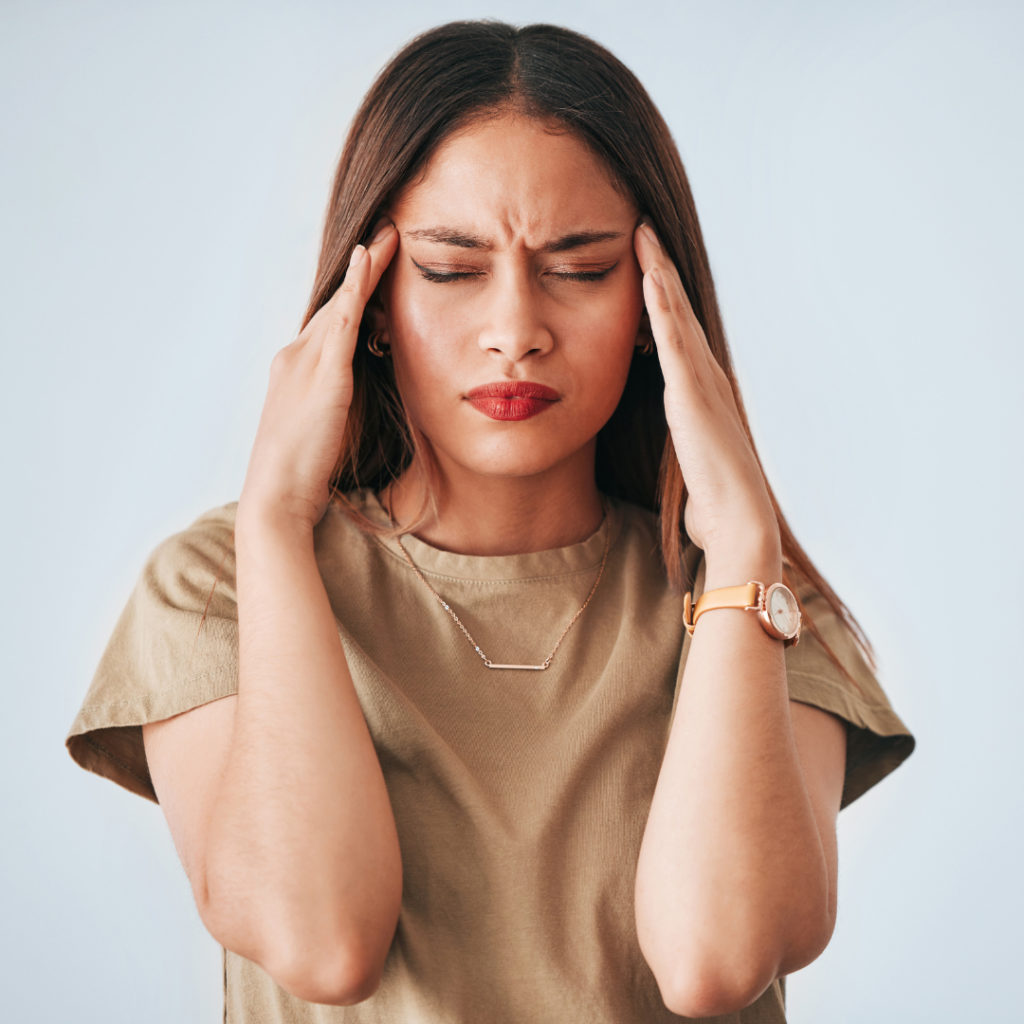Anxiety is a constant companion for many people, and when left unattended, it can have a significant impact on both mental and physical well-being. From emotional eating to insomnia, OCD, and IBS, the effects of unchecked anxiety can manifest in various ways. However, there are numerous strategies that individuals can employ to diminish anxiety, including the innovative approach of hypnosis. In this article, we will explore the diverse manifestations of unchecked anxiety and provide practical techniques for reducing its impact. Explore the top 4 anxiety issues, their symptoms, causes, and effective ways to manage and reduce anxiety for a calmer, healthier mindset.
- Emotional Eating
Too often, unhealthy eating habits serve as a coping mechanism for individuals grappling with anxiety and this unwanted habit normally comes from childhood. The stress and unease associated with anxiety can lead to impulse-driven consumption of comfort foods laden with sugar and unhealthy fats. The temporary relief that comes from consuming these items can offer a fleeting sense of comfort but ultimately exacerbate the cycle of anxiety.
A helpful approach to combat emotional eating involves recognising it as a mere distraction that ultimately exacerbates problems, rather than resolving the underlying stress triggers. Consider emotional eating as akin to a baby using a dummy to seek comfort, except in this case, the choice of comfort, such as sugary foods, is unhealthy, contributes to mood swings, and can lead to excess weight.
It’s valuable to remind yourself that as an adult, during times of stress, your focus should be directed towards non-food-related activities that promote calmness and problem-solving, rather than resorting to food for comfort. Seeking professional guidance, such as counselling or therapy, can also be beneficial in establishing healthier coping mechanisms and behaviour modification techniques.
- Insomnia
Sleep disturbances are a common consequence of unchecked anxiety. Racing thoughts and a heightened state of alertness prevent individuals from either falling asleep and/or experiencing deep restorative sleep, leading to fatigue and a further increase in anxiety levels the next day, it’s a vicious cycle!
To address insomnia related to anxiety, it is vital to establish healthy sleep hygiene practices, such as maintaining consistent bedtimes, creating a calming bedtime routine (not too complicated though!), and allocating time for relaxation before sleep. I recommend reading a book until I can’t keep my eyes open, then and only then do I attempt to sleep. Additionally, incorporating mindfulness meditation, guided hypnosis MP3 recordings, or relaxation techniques in bed can help quiet the mind and facilitate a deeper state of relaxation conducive to sleep.
- Obsessive-Compulsive Disorder (OCD)
Anxiety often underpins the symptoms of Obsessive-Compulsive Disorder (OCD), a condition characterised by intrusive thoughts and ritualistic behaviours. Unchecked anxiety can contribute to the exacerbation of OCD symptoms, inducing distress and interfering with daily function. People with OCD tend to seek reassurance caused by the intrusive thoughts, however, the relief they gain is only temporary again akin to the baby’s dummy analogy, and soon enough the anxiety comes back again, another vicious cycle!
If you suffer from OCD therapeutic interventions, including behavioural therapy (CBT) and exposure response prevention (ERP), are useful in treating OCD symptoms. These modalities aim to help individuals reframe their thoughts and gradually confront anxiety-provoking situations, ultimately reducing the impact of OCD on their lives.
- Irritable Bowel Syndrome (IBS)
Most of the clients who come to see me for help with anxiety also suffer from IBS at the same time, and that is because there is a huge link between anxiety and IBS. Anxiety has long been identified as a crucial factor in the exacerbation of Irritable Bowel Syndrome (IBS) symptoms, which can lead to discomfort and disruption in daily life and worse cases I have seen – leading to agoraphobia.
Mind-body approaches, such as yoga, deep breathing exercises, hypnotherapy, and mindfulness meditation, can all contribute to the reduction of gastrointestinal distress associated with anxiety. Moreover, maintaining a balanced diet, rich in fiber and low in trigger foods, can aid in managing IBS symptoms and mitigating the effects of anxiety on the digestive system.
The Role of Hypnotherapy in Anxiety Management
Hypnotherapy has emerged as a compelling option for addressing anxiety and its related symptoms. Rooted in the power of suggestion, hypnosis aims to access the subconscious mind to instigate positive behavioural changes along with relaxing the nervous system at the same time. Through a state of deep relaxation and heightened focus, individuals can explore and reframe the underlying causes of anxiety, leading to a reduction in symptoms and an enhanced sense of well-being.
Hypnosis for managing anxiety taps into the power of your subconscious to tackle the underlying patterns and beliefs that fuel high anxiety levels. By working with your subconscious, you can open the door to positive change, gaining better ways to reduce anxiety. Through hypnosis, you can reframe negative thoughts and cultivate a greater sense of calm and control, leading to less impact from anxiety in your daily life.
Last words…
Anxiety is a common emotion that everyone encounters at some point in their daily lives. However, when left unmanaged, it has the potential to escalate and lead to a variety of other unwanted problems. Therefore, if you find yourself consistently operating under high levels of anxiety, it is crucial to seek ways to reduce it to prioritise your overall well-being.
If you need further assistance with reducing anxiety or fears – check out my “Hypnosis for Anxiety” service during which I can help you feel calmer, less stressed, and less anxious. To find out more – click this link www.alexsaxton.com/hypnosis-for-anxiety I also offer targeted hypnosis services to help with Emotional Eating, Insomnia, and OCD.
I’m a clinical hypnotherapist in Poole with over 15 years of experience, and to date, I have helped over 100 clients from London, Bournemouth, Southampton, Bath, Bristol, the United States, and as far afield as New Zealand in overcoming anxiety. Regardless of where you reside, I am fully equipped to assist you in the same manner through my online services so do get in touch if you need my hypnosis help too. Here is the link to my website www.alexsaxton.com and here is the link to my calendar if you would like to book a consultation wwww.alexsaxtoncalendar.as.me
Disclaimer: The information provided in this blog is for educational and informational purposes only and the tips shared here are general and may not be suitable for everyone. I am not a medical doctor and the tips provided should not be considered a substitute for professional medical advice, diagnosis, or treatment. It is essential to differentiate between anxiety symptoms and potential underlying medical conditions. Sometimes, anxiety symptoms may be the first indicators of an underlying health issue. Therefore, if you are experiencing anxiety or any other health concerns, it is recommended to consult with a qualified healthcare professional or a licensed medical doctor for proper evaluation and guidance first.



